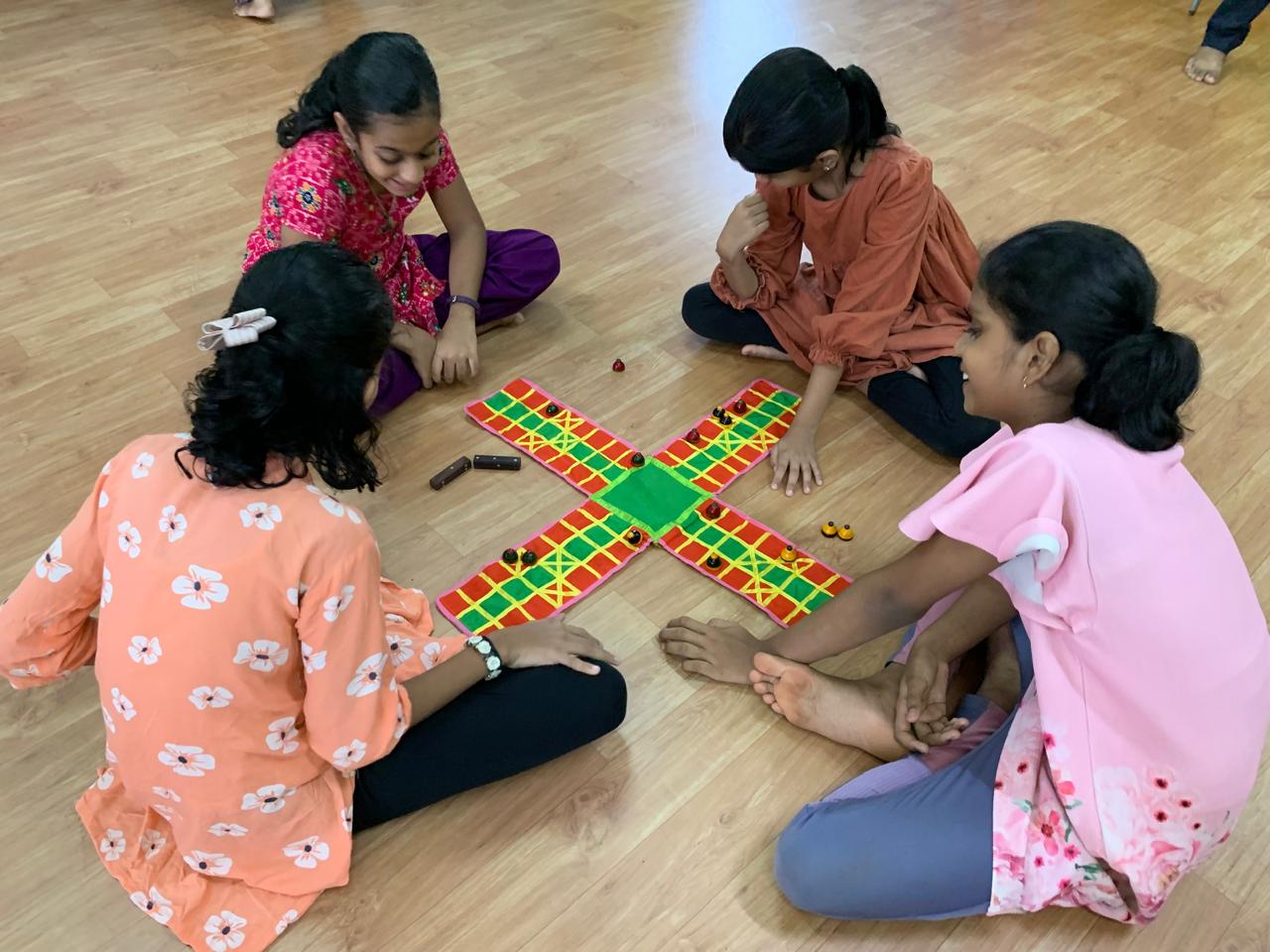Chaupar

Chaupar (also spelled as Chaupad or Chauparh) is one of India’s oldest and most famous traditional board games, with roots tracing back to ancient times. This game is believed to have been played by Indian royals and nobility, especially during the Mughal and Rajput eras. It encourages strategic thinking, patience, and social interaction.
Setup:
1) Board and Pieces: The Chaupar board is typically cross-shaped, and each player has 4 pieces (called pawns or ‘gotis’) of a distinct color. The pieces start at a central area (the ‘home’).
2) Players: The game can be played by 2-4 players. Each player chooses a color and places their 4 pieces in the central area.
3) Dice or Cowrie Shells: The game uses either cowrie shells or dice to determine the movement of the pieces. Typically, players use 6 or 7 cowrie shells, with specific values assigned based on the number of shells landing ‘open’ side up.
Gameplay:
- Rolling the Dice or Throwing Shells: Each player takes turns rolling dice or throwing shells to move their pieces. The number rolled or the combination of shells determines how many spaces the player can move their piece.
- Movement: Players move their pieces along the outer edge of the board in a counter clockwise direction. The objective is to move the pieces around the board and bring them back to the home area.
- Entering the Board: Players need to roll a specific number (usually a 5 or 6) to enter a piece from the starting area onto the board.
- Capturing Opponents: If a player lands on a space occupied by an opponent’s piece, they ‘capture’ that piece, sending it back to the start. The opponent must roll the required number again to re-enter the board.
- Reaching the Home: After completing one full circle, the player must land on their home space by rolling the exact number needed. The first player to bring all their pieces home wins.
Benefits of Playing 'Chaupar':
- Strategic Thinking: Players must plan their moves carefully, considering both offense and defense, which enhances critical thinking and foresight.
- Patience and Focus: The game teaches players to remain patient and focus on long-term strategies rather than rushing through.
- Social Interaction: As a multiplayer game, Chaupar encourages communication, teamwork, and healthy competition, fostering social bonding.
- Cognitive Skills: Regular play sharpens memory, concentration, and decision-making abilities.
- Cultural Connection: It connects students to their cultural heritage, promoting a sense of tradition and history.
